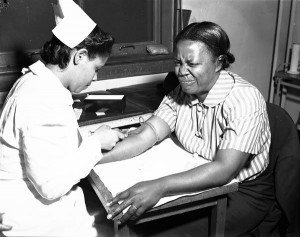 An early-stage clinical trial has found a candidate dengue vaccine that appears to be safe and produce a strong immune response in subjects. The study, carried out on 112 healthy men and women between the ages of 18 to 50 at Johns Hopkins Bloomberg School of Public Health in Baltimore trialled four versions of a vaccine called TetraVax-DV. While all four variations of the vaccine produced some immune response, one version in particular, TV003, proved particularly effective.
An early-stage clinical trial has found a candidate dengue vaccine that appears to be safe and produce a strong immune response in subjects. The study, carried out on 112 healthy men and women between the ages of 18 to 50 at Johns Hopkins Bloomberg School of Public Health in Baltimore trialled four versions of a vaccine called TetraVax-DV. While all four variations of the vaccine produced some immune response, one version in particular, TV003, proved particularly effective.
According to the World Health Organization, there are 50 million to 100 million cases of dengue every year. 500,000 of these infections lead to hospitalization, and many of those worst-affected are children. There are four different viruses causing Dengue, DENV-1, DENV-2, DENV-3 and DENV-4.
The study found a single dose of TV003 resulted in an antibody response to all four dengue viruses in 45 percent of people tested. A further 45 percent of subjects showed an immune response to 3 out of four viruses. A single dose of TV003 resulted in an an immune response to at least three out of the four viruses causing dengue in 90 percent of subjects given TV003. “We are cautiously optimistic about these recent clinical trial results with this candidate tetravalent vaccine developed at NIAID; however, much more work still needs to be done.” said Dr. Anthony S. Fauci, Director of the National Institute of Allergy and Infectious Diseases (NIAID).
TV003 is also relatively inexpensive to produce – costing less than $1 U.S per dose. This is important in order for the vaccine to be used in developing countries. The vaccine and technology required to produce it has been licensed for manufacture and further analysis by companies in Brazil, India and Vietnam, where dengue is widespread. In Brazil and Thailand the next stage of trials will begin shortly to evaluate the ability of TV003 to ilicit an immune response and its safety as a vaccine.
The original study can be found at http://jid.oxfordjournals.org/content/early/2013/01/17/infdis.jis936.abstract